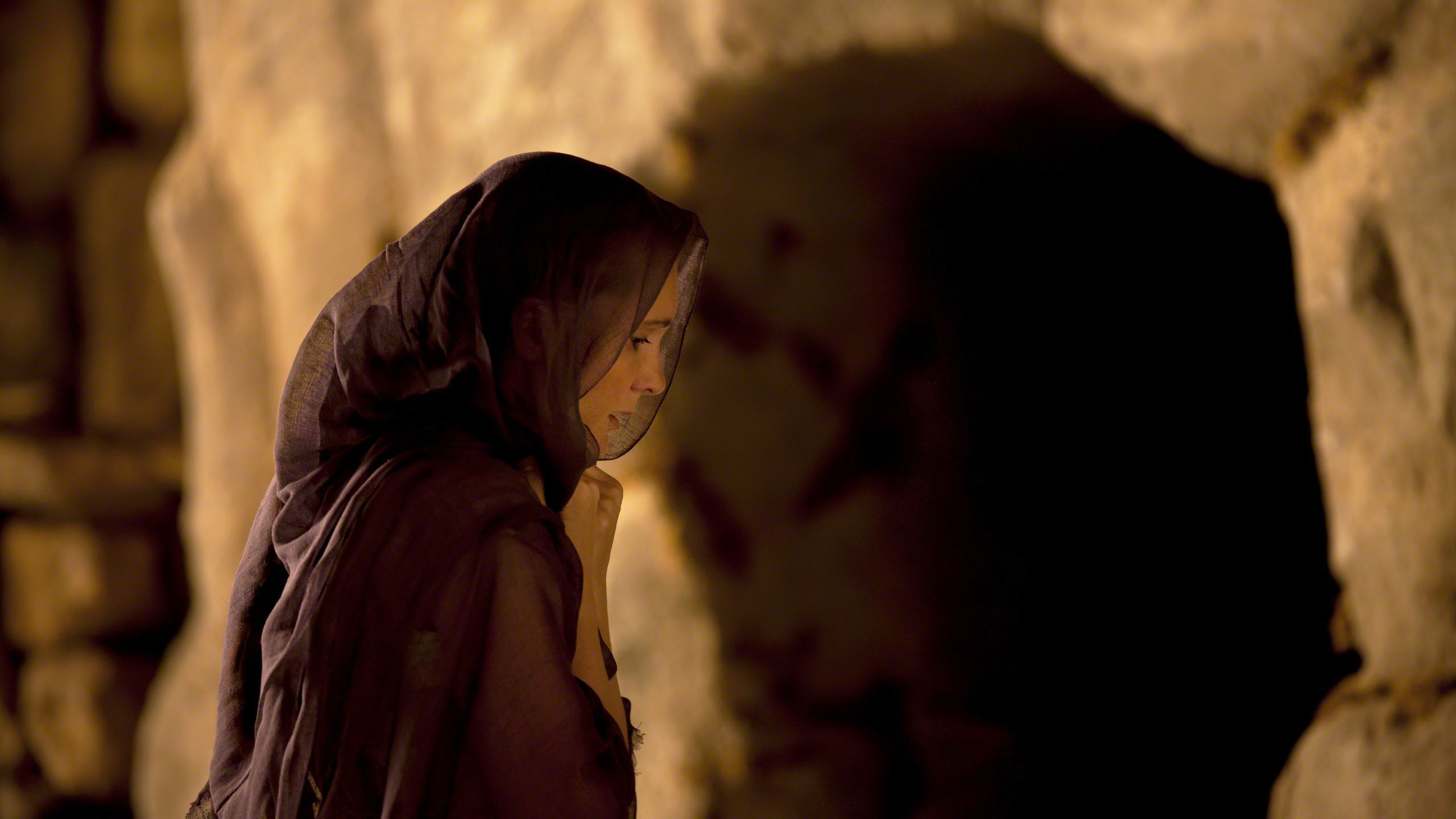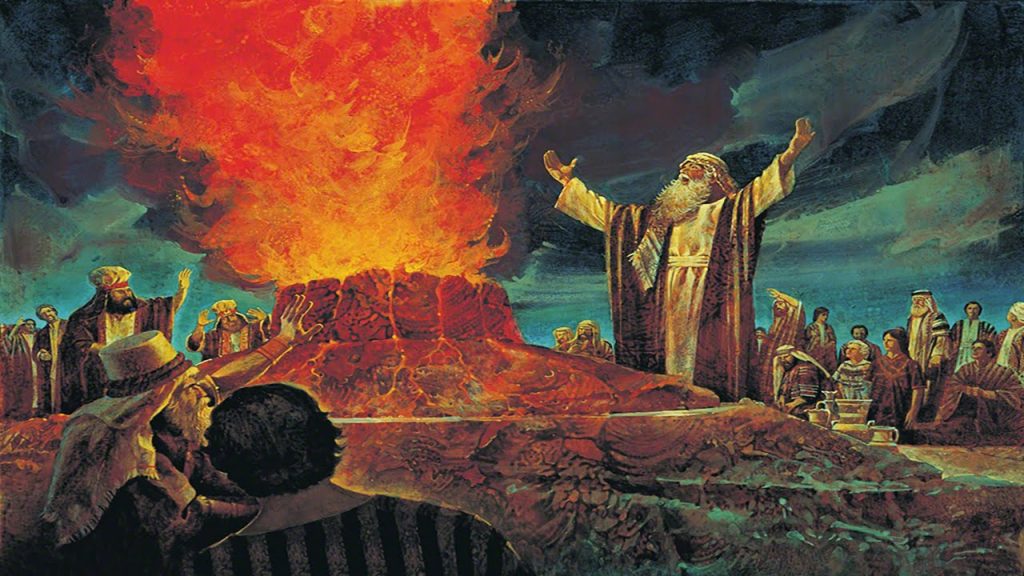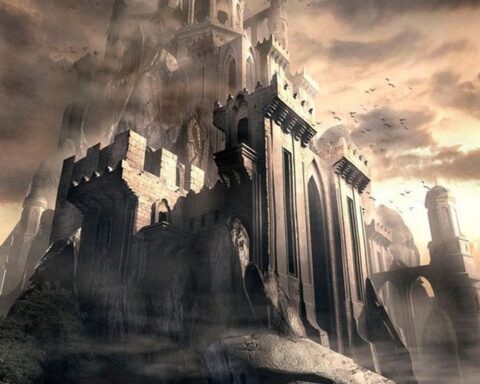Faint light hailed a cold Sunday morning as Mary Magdalene led her co-conspirators through the city’s heavy gates. Their mission was a sorrowful one. They were to enter the tomb of a rich man to pay their last respects to a poor man, an itinerant country preacher whom Rome and the Sanhedrin had condemned and crucified. To do the final duty of women for a man they had loved and who had led them and loved them. And who had left them. Now the burial spices they carried were all they could offer his memory.
Mary shook her head as Salome asked again how they should remove the stone from the tomb’s face, a stone that had required three men to place, a stone that had been sealed and was probably still guarded by those afraid that Jesus’ own disciples might poach his cold, bloody corpse by moonlight. It was the third time Salome had asked her, the youngest of the four women yet somehow in this hour of pain their leader. But Mary didn’t know. Why did they ask her, she complained (though only to herself) if she didn’t know? Even among friends, Mary felt alone.
The whole garden seemed a tomb as her feet led her toward a place she had last viewed through tears. The wet, cold ground absorbed the sound of her footsteps. The quiet whimpering of Salome and the heavy breathing of the others were the garden’s only sounds. Then all the sounds stopped, for each of the women had seen what Mary saw: the tomb, dark and quiet. But it was also open. And it was also empty.
The pain in her side was nearly unbearable as Mary bounded back through the gates, fighting her way against the bustle of those leaving Jerusalem for home. The other women would follow at their own pace, she thought. They could not be expected to keep up with her, and she needed to find Peter. None of the explanations that formed in her mind said what she needed to say because she didn’t know what to say. She couldn’t decide how to explain everything she didn’t find. When Peter and John answered the door, she simply said, “They have taken away the Lord, and we don’t know what they have done with him.” With sideways glances at one another they rushed past her, grabbing cloaks to be donned on the run. She tried to follow them but could not keep up, not after having run so far. The men melted immediately into the anonymous mass, leaving her alone once again.
When Mary reached the garden again it was empty, as before. Her female companions had certainly reached the city by now, she thought. Peter and John, if they came at all, had left as well. She slowed, walking at last, seeking the tomb though she didn’t know why. She listened for movement but her own ragged breathing and the sound of her heartbeat drowned out any sounds that might have revealed a friendly presence or betrayed the approach of anyone else. She had composed herself by the time she reached the open tomb, and she peered again, wondering if perhaps those who had taken his corpse had left behind a clue. Then she froze. There were two men in the tomb, and one of them was looking at her.
“Woman, why are you weeping?” Though the words were friendly, the voice was uncanny, even unearthly. Before she could catch herself, Mary blurted out the same explanation she had given Peter. Then the second man looked up at her, his face strange and perfect and cold. Her courage broke and, mumbling an unlikely explanation for her presence in another’s private garden, she fled as far as her aching legs would drag her – mere yards from the tomb but out of sight of its gaping mouth. She feared being discovered in this strange and lonely place, but her body would bear her no further.
“I don’t know where they have taken him,” she said to herself, and the sobs came again. This time she could not stop them.
“Woman, why are you weeping?” The voice was close behind her, but Mary could flee no more. She could not even turn. She knew what she would answer even before she said it; a few familiar words now besieged her whole lonely world.
“Sir,” she said, “if you have moved him, please tell me where, and I will take him away.”
“Mary.” The voice was the same, but this time it seemed familiar. She shook her head, but from confusion rather than stubbornness.
“Mary, turn around.” The voice was urgent and yet edged with a joy unexpected.

She looked up and a Man stood before her. One she envisioned would have a trowel in his hand instead had on his open hands the scars of nail wounds. She looked up at his face, now expecting to see dried blood from a crown of thorns and a visage shattered by blows, but instead finding a smile on living lips and a twinkle in kind eyes. Her legs forgot their weariness as she leaped into his arms.
“Rabboni,” she cried.
And this time she did not cry alone.










4.5
Beautiful!
Thank you.
5
And to think that indeed we never are alone. Thank you, Jesus!
Whoever is wise, and will observe these things, even they shall understand the loving kindness of the LORD. Psalm 107:43
5